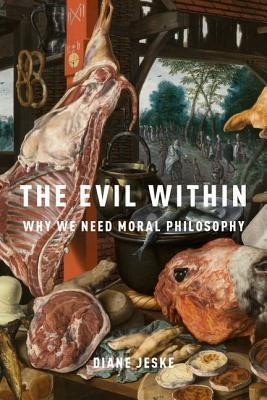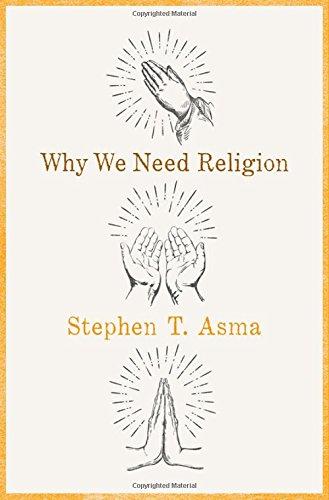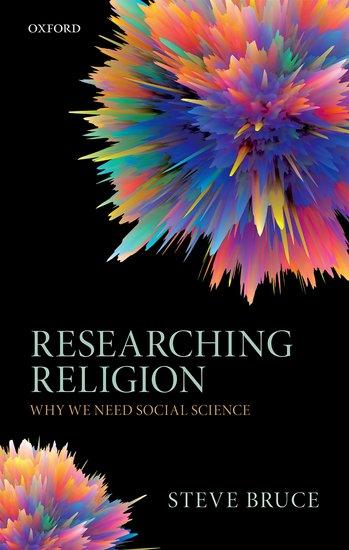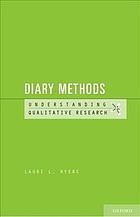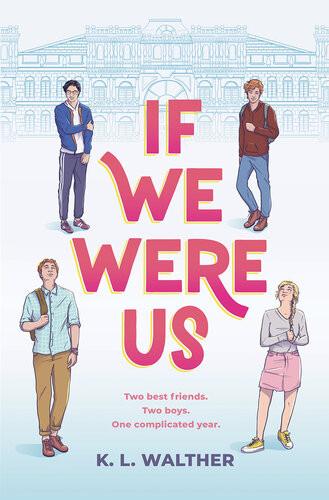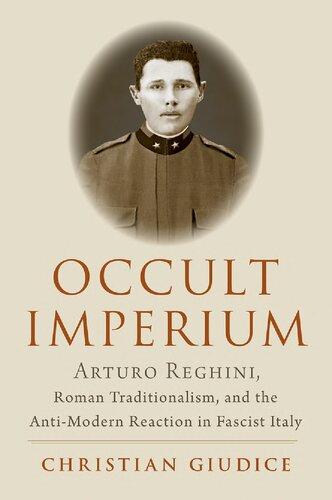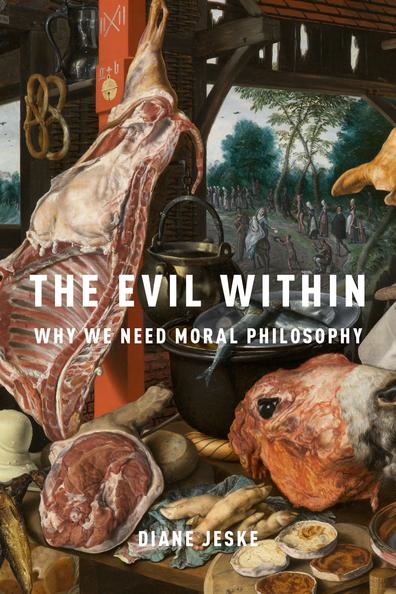1
Oxford University Press is a department of the University of Oxford. It furthers the University’s objective of excellence in research, scholarship, and education by publishing worldwide. Oxford is a registered trade mark of Oxford University Press in the UK and certain other countries.
Published in the United States of America by Oxford University Press 198 Madison Avenue, New York, NY 10016, United States of America.
© Oxford University Press 2018
All rights reserved. No part of this publication may be reproduced, stored in a retrieval system, or transmitted, in any form or by any means, without the prior permission in writing of Oxford University Press, or as expressly permitted by law, by license, or under terms agreed with the appropriate reproduction rights organization. Inquiries concerning reproduction outside the scope of the above should be sent to the Rights Department, Oxford University Press, at the address above.
You must not circulate this work in any other form and you must impose this same condition on any acquirer.
Names: Jeske, Diane, 1967– author.
Title: The evil within : why we need moral philosophy / Diane Jeske.
Description: New York : Oxford University Press, 2018.
Identifiers: LCCN 2017057399 (print) | LCCN 2018023199 (ebook) | ISBN 9780190685409 (online resource) | ISBN 9780190685386 (updf) | ISBN 9780190685393 ( epub) | ISBN 9780190685379 (cloth : alk. paper)
Subjects: LCSH: Good and evil. | Ethics.
Classification: LCC BJ1401 (ebook) | LCC BJ1401.J47 2018 (print) | DDC 170—dc23
LC record available at https://lccn.loc.gov/2017057399
9 8 7 6 5 4 3 2 1
Printed by Sheridan Books, Inc., United States of America
To my mother, Barbara Franke:
Thank you for being my best friend
Contents
Preface | ix
Acknowledgments | xiii
1. Learning from Evil | 1
2. Just the Bad and the Ugly | 30
3. Culture and Moral Evaluation | 71
4. Do the Ends Justify the Means? | 115
5. The Feeling of Morality | 152
6. Moral Evasion | 195
7. The Moral of Mr. Jefferson’s Story | 224
NOTES | 251
INDEX | 275
Preface
When I was eleven years old, my mother gave me a copy of The Diary of Anne Frank. At the end of the book was an afterword, explaining what happened to Anne and the other occupants of the Secret Annex after their capture by the Gestapo. This brief glimpse into the horrors of the Holocaust had a profound impact on me. I was young enough to be afraid that what had happened to Anne and her family could happen to me and my family. I wanted to alleviate this fear, and thus was led to find out more about the Holocaust and its origins in order to reassure myself that what had happened in Europe in the 1940s would never happen in the American Midwest of the late twentieth century in which I lived.
By the time I was fourteen, I had done more reading, including William Shirer’s The Rise and Fall of the Third Reich. Gradually, the object of my fear had changed: instead of being afraid of being a victim, I had become afraid that I carried within me the potential to be a perpetrator. This fear was in part responsible for my interest in philosophy: I wanted to know how to be a good person, how to ensure that I would be and would stay the sort of person who would never, under any circumstances, be a perpetrator. Not surprisingly, as I studied philosophy, my focus and interests changed. However, after I had tenure, I had more
freedom and time to think about new sorts of courses to teach. My early concerns about the perpetrators of the Holocaust and a somewhat more recent interest in the history of American slavery led me to construct a course called The Nature of Evil, in which I used case studies of very bad individuals to examine various topics in moral philosophy. My teaching of this course has been one of the most rewarding experiences of my twenty- five years as a professional philosopher. Students have often been struck by their unexpected sympathy with perpetrators and with a stark realization that they just don’t know what they would do if they found themselves in morally challenging circumstances. I have been gratified by the extent to which the grip of the firstperson perpetrator narratives has resulted in the same sort of self-examination in my students that it has caused in me, and also by how those narratives can make what might otherwise have seemed to be merely abstract philosophical issues appear as what they really are: urgent questions that every person needs to confront for him or herself.
And so I began the writing of this book, using first-person narratives by perpetrators of evil to enliven and make accessible issues in moral philosophy. Gradually, however, I began to see the book as a way to demonstrate the importance, for everyone, of the study of moral philosophy. This motivation came as a result of spending six years as chair of my department, six years that commenced in 2008 just before the economic downturn that has resulted in so many cuts in higher education. Attempting to defend the autonomy of my department in opposition to an administration that wanted to merge us with other units, I was forced to constantly point to how well philosophy majors do on entrance exams for business or law school and how high the salaries of philosophy majors who end up in business are relative to those who majored in other fields. And I realized that we are all losing
the most important point of a liberal education, an education to which philosophy is absolutely essential: the creation of citizens who can think for themselves, and can enter into civil debates on complex moral issues with others who have opposing positions, citizens who can analyze arguments, and perhaps most important, see when no argument has been forthcoming. The level of the “debate” in the 2016 American presidential election and the numbers of people seduced by terrorist propaganda have confirmed to me how much we need to ensure that we have citizens who can think beyond mere efficiency, self-interest, and slogans.
I am certainly not naïve enough to believe that a study of moral philosophy is either necessary or sufficient for creating the sorts of citizens we need in order to have a well- functioning democracy. But I do believe that incorporating the study of philosophy—in particular, of moral philosophy—into our standard curricula at all grade levels has the potential to contribute to the creation of such citizens. The best compliment I ever receive as a teacher is when a student thanks me for a course in political philosophy or ethics by saying, “I just never thought about these issues in this way before.” I regularly see students questioning their beliefs, and questioning them in ways that are completely new to them. Most important, I see students coming to see complexities that they had never seen before, acknowledging that maybe, just maybe, there is more to think about with respect to their own views and with respect to the views of others than they had previously thought.
Studying philosophy can be a painful process, insofar as it has the very real potential to shake our deepest convictions and to cause us to view ourselves in a new and perhaps less gratifying light. I am firmly convinced that education must challenge students to confront uncomfortable claims made by others, and teach them how to engage in such debates in a civil and fruitful
manner. We do not do that by limiting what we say to each other but, rather, by learning how to respond to each other and how to examine what we ourselves are saying.
The first and most important step we need to take in any attempt to find the truth is figuring out what we actually believe and why we believe it. This book is intended, in part, to provide the reader the kind of exercise in self-examination that I think is philosophy’s most important product when it is successful. In my own case, I have never entirely convinced myself that I absolutely could not, under the “right” circumstances, become a perpetrator of evil. I do hope that my own study of philosophy has at least lessened the likelihood that I would become such a perpetrator, and I think that we have absolutely nothing to lose from launching an experiment to see whether widespread education in moral philosophy can help us to collectively prevent such “right” conditions from ever being realized.
Acknowledgments
The idea for this book grew out of my experiences teaching a course called The Nature of Evil. I would like to thank all of the University of Iowa students who have taken that course over the past several years for your enthusiasm and contributions to classroom discussions: you have helped me a great deal in thinking about the issues raised by this book. I would also like to thank the graduate students in my seminar Ethics and the Holocaust for provocative discussions of similar issues.
The final version of the manuscript benefited greatly from comments by David McNaughton, Lisa Tessman, and an anonymous referee for Oxford University Press. Richard Fumerton read and reread and then read yet again various drafts of this manuscript and, as always, provided incisive comments and critiques. Most important, he provided encouragement and advice at every step of the process as he has throughout my career, and this work, like all of my work, is far better than it would otherwise have been. Finally, I would like to thank my editor at Oxford University Press, Lucy Randall, who has been enthusiastic and supportive from first submission to final product, and who provided valuable and insightful comments on the manuscript.
1 Learning from Evil
Thomas Jefferson and Edward Coles
In 1814, Thomas Jefferson, retired from public service after his two terms as president of the United States, was living the life of the genteel southern patriarch: ensconced in his mountaintop home, Monticello, Jefferson could indulge his passions for invention, correspondence, and university building because the day- to-day work of his plantation was performed by the men, women, and children he held in bondage. This human capital constituted a large portion of Jefferson’s assets, against which he could borrow money to hold on to Monticello and to continue to engage in his intellectual endeavors, particularly those that would solidify his reputation with posterity. And this was how the revered author of the Declaration of Independence fully intended to live out the remainder of his days.
In that year, Edward Coles punctured the fabric of this southern idyll. Coles was a young man who had served as a private secretary to James Madison and was soon to inherit the means to live the southern upper- class male ideal on a neighboring plantation. But Coles had come to see slavery as wrong, as a blight on the South left over from colonial days. He knew that
Jefferson had, as a young man, spoken out against slavery, even including in his initial draft of the Declaration of Independence an indictment of England for having introduced such an institution on the soil of the New World.1 Of late, Jefferson had been silent on the slavery question, but Coles recognized Jefferson’s potential influence in moving Virginia toward a policy of gradual emancipation. He hoped to rouse Jefferson to once again speak out, unhesitatingly and without reservation, against the institution of slavery, thereby giving emancipation the support of Virginia’s favorite and most revered son.
But Coles did not intend simply to sit back and see what Jefferson and the Virginia legislature would do. Coles could not control the fate of slavery in Virginia, but he did have immense power over the fate of his own slaves. He intended to sell his plantation, move with his slaves to the free territory of Illinois, and use his resources to establish farms for his then- freed bondsmen and bondswomen. Coles hoped to get Jefferson to endorse this plan, thereby encouraging other young men of Coles’s position to follow his example. For Coles, recognition of the evil of the institution of slavery was motivating it provided him with an impetus to action, an impetus that outweighed his own social and financial interests. He wanted to get others to see slavery’s wrongness and to act on that perception, and he formulated a plan to extricate himself from complicity with the institution and to do what he could to help those who suffered under it.
Thomas Jefferson, however, did not intend to allow Coles’s letter to puncture the fabric of his peaceful retirement. His response to Coles was twofold: first, Coles ought not to carry out the proposed move to Illinois because former slaves were as “incapable as children of taking care of themselves.”2 Given this fact, Coles’s best strategy, according to Jefferson, was that which Jefferson himself had adopted: stay in Virginia and quietly (apparently, if we take Jefferson to be acting on his own advice,
very quietly) work for gradual emancipation. Jefferson claimed that prudence dictated waiting for public perception to advance, because one would do more harm than good if one aimed for immediate change or tried to exhort people toward any moral improvement to which they were adamantly opposed. Jefferson, then, seemed to present himself as in fact taking the moral high ground by continuing to live a life financed by the sweat of his slaves.
Beyond these more general attempts to justify refusing to speak out in accordance with Coles’s request, Jefferson also appealed to his advanced years. He told Coles that the work of emancipation was for younger generations, and that he was simply too old to undertake such an arduous task.3 Coles must have found this a particularly weak excuse, given Jefferson’s ceaseless and energetic commitments to invention, writing, and university building. In his response to Jefferson, Coles attempted to shame him by pointing to the continuing activism of the elderly Benjamin Franklin, a fellow Founding Father more than forty years Jefferson’s senior. More important, Coles pointed out that Jefferson had a special obligation to take up the work of emancipation: Jefferson was one of the few “who have it in their power effectually to arouse and enlighten the public sentiment, which in matters of this kind ought not to be expected to lead, but to be led.”4 If the problem was public sentiment, then Jefferson, with the great respect and authority he carried, needed to work to change it. Coles might have added that by doing nothing, Jefferson was actually helping to solidify public opinion against emancipation, thereby making it more difficult for the younger generations to make that fight against slavery.
Edward Coles received no further communication from Jefferson. In 1819, he packed up his slaves and headed to Illinois. He not only emancipated those seventeen men, women, and children but he also established them on farms that they could
gradually purchase from him at reasonable rates. Beyond the way in which he radically transformed the lives of his former slaves, he had an immense impact on the future of the nation that Jefferson had, in the previous century, helped to create. Illinois had entered the Union as a free state in 1818, but in 1824, pro- slavery residents tried to pass a constitutional amendment legalizing slavery. By then, Edward Coles was Illinois’s governor, and largely due to his efforts, the pro- slavery forces were narrowly defeated. Illinois would remain a free state. In the 1850s, that state’s Republicans would work to gain the party’s presidential nomination for a resident of Springfield— Abraham Lincoln— who would finally complete the work done by early emancipators such as Coles.
The story of Edward Coles and Thomas Jefferson is that of two men who both claimed to believe the institution of slavery was morally wrong. Yet the actions of these two men were extremely different. This kind of situation— sharing apparently the same moral beliefs yet making radically different choices— forces us to ask several questions. Did Jefferson and Coles really share the same moral beliefs? Jefferson had certainly made antislavery assertions as a young man, and he continued, in private, to insist that slavery was morally wrong. Perhaps, however, we should read his actions as casting doubt on the sincerity of his assertions; after all, how can a man believe an institution to be seriously wrong and yet continue, with little apparent conflict, to remain complicit in it?5 This question is particularly pressing with respect to Jefferson,6 because he knew how much influence his name carried; merely by speaking out against slavery he could have had a major impact on the public debate in Virginia. If he had gone even further and emancipated his own slaves (or had ensured their emancipation upon his death, as George Washington had done), his actions would have had genuine potential to make gradual emancipation at the very least a real
possibility. So why did Jefferson remain silent at such a crucial moment if he really believed slavery to be wrong?
One plausible explanation appeals to Jefferson’s financial situation: he was in debt, he loved Monticello, and he wanted to preserve his estate for future generations of Jeffersons. There is little doubt that such considerations weighed heavily on Jefferson. But we need to keep in mind that we are talking about complicity in an extremely evil institution, the horrors of which are often papered over in schoolbook narratives of the lives of the founding fathers: men and women worked to death in disease-ridden swamps; families torn apart, never to be reunited; women and girls raped by powerful white men, backs scarred by the whip; and the endless degradation and humiliation of being denied education, self-governance, and basic self-esteem. Did Jefferson allow himself to see slavery as it was, or did he deceive himself into believing that it was not that bad after all? Did his own self-interest and his concern for his family cause him to ignore the realities of the institution that sustained his hobbies?
Perhaps he in fact, at least at some level, recognized the brutality of the institution of slavery, but in order to protect his own self-interest, he deceived himself into believing he really could do nothing about it and so he might as well just enjoy his life at Monticello. He seems to have convinced himself that he really did have “the wolf by the ears,” as he famously described the South’s situation with respect to slavery, and there was no way of letting go without causing grave harm to everyone involved. So maybe he did not even consider the merits of Coles’s plan but, rather, willfully decided to ignore those merits so as not to mentally disrupt his own idyll. He had to convince himself that there really was no good antislavery option if he was to continue to perceive himself as a good man—even as the great man he so clearly wanted to be seen as by his fellow countrymen, both contemporary and in the future. And by continuing to cling to the
belief that Americans of African descent were inferior to whites, Jefferson’s own favored perception of himself was that much easier for him to maintain.
Now many might be inclined at this point to insist that Thomas Jefferson was a humane slaveholder, that he shielded his slaves from the worst aspects of the institution. Of course, Americans have been taught to believe that, and as a result we allow ourselves to maintain an idealized picture of Jefferson. In fact, Jefferson viewed slaves as commodities, advising friends to invest in black slaves in order to be financially secure. Jefferson himself authorized the whipping of young slave boys, and he employed an overseer of whose cruel reputation he was fully aware. He gave slaves as gifts to his daughter, knowing full well that in doing so he was separating families. All evidence points to his having taken a teenage slave girl, Sally Hemings, as his mistress, and any attempts to reinterpret this as a loving romance have to be reckoned with the immense power that Jefferson had over Hemings: her fate and that of her children (at least some of whom were most likely Jefferson’s) was entirely in Jefferson’s hands. In spite of this, Jefferson’s own attempts to be remembered as a man noble in deeds as well as words have been all too successful.7
These reflections on Thomas Jefferson should be troubling to all of us. My goal is not to assassinate Jefferson’s character. Rather, taking note of those aspects of Jefferson that are often ignored in American culture should trouble us, precisely because there can be no doubt about Jefferson’s many extraordinary talents and accomplishments— talents and accomplishments that cannot be dismissed merely because Jefferson had so many of the flaws common to us all: he was surely vain, he had an immense sense of his own importance, and he was not always open to considering the merits of his opponents or of their views (witness his intractable dislike of and contempt for the at least as
extraordinary and talented Alexander Hamilton). But Jefferson was intellectually gifted, highly educated, literate, scientifically minded, creative, and capable of deep affection and friendship, as well as having had cosmopolitan tastes and life experiences. How could such a man be so complicit in so much evil? More important, how could such a man have continued to maintain that his course of action or, rather, passivity was the morally best available? How could a man who had daily interaction with African Americans, and who moreover shared his bed with a slave woman and most likely fathered at least some of her children, have not come to seriously doubt the supposed inferiority of blacks? We cannot ignore the fact that Jefferson played a significant role in maintaining and benefiting from an evil institution, and we should not do so, because that fact raises important and pressing questions about moral belief, moral motivation, and moral action.
If Jefferson, with all his social and natural advantages, failed so miserably on such an important moral issue, we might be led to think that moral knowledge and the motivation to act in accord with such knowledge are terribly difficult to attain, especially under less than ideal cultural conditions. But it is for precisely this reason that I began with the story of Edward Coles and his letter to Jefferson. Coles was a product of the same social and cultural environment that produced Jefferson, and from the evidence that we have, there is no reason to think that Coles was Jefferson’s superior, or even his equal, in intellectual capacity and accomplishment. Jefferson certainly was not devoid of personal courage: his authorship of the Declaration of Independence was an act of treason that would have exposed his neck to the rope if the British had won the war. So why did Coles attain the moral knowledge that slavery was wrong and the motivation to act on that knowledge, while Jefferson sat home and consoled himself with the thought that the Edward Coles of the world
were hopelessly deluded idealists with no real understanding of African Americans?
One might think that these are questions of purely historical interest, and that we should leave it to the historians to sort out the tangled psychologies of long-dead figures. But the story of Jefferson and his response to Coles provides us with a valuable occasion for self-examination, an opportunity to ask whether we ourselves are guilty of engaging in precisely the sort of “justification” of our actions (or of our failures to act) as Jefferson was. Most Americans have tremendous admiration for Jefferson as a Founding Father; they view him as a “great man,” and our country teems with streets, schools, towns, and the like that have been named after him. So we should all be willing to countenance the possibility that if Jefferson was capable of making certain kinds of mistakes, then so are we. And we should also recognize what a gift it would be to each of us to have an Edward Coles always to hand to help us see when we are making such mistakes. But we do not; we have to be our own Edward Coles. Further, we have to avoid responding to our own “inner Coles” in the way that Jefferson responded to the real Coles: we need to avoid defensiveness, self-deception, and self-pleadings. How can we accomplish these goals?
Thinking About Morality
There is no easy answer to the question just posed. However, the study of moral philosophy can provide at least part of the answer. My aim in this book is to use narratives such as those of Jefferson to give us entry into the sorts of mistakes not only that people engaged or complicit in evil often make in their reasoning but also of which we ourselves are or can be guilty. I hope to show how thinking in the ways that are characteristic of
moral philosophy can be a tool for identifying and avoiding these types of mistakes. And, of course, I intend that the narratives of moral failure will serve as cautionary tales; that is, when common mistakes in moral reasoning collide with moral crisis, we can find ourselves committing morally heinous actions that make us complicit with great evil. I will also, at some points in what follows, suggest that we may already be complicit; indeed, one of the most difficult tasks of moral reasoning is to identify those morally loaded choices and situations.
I certainly am not making the claim that if we all study moral philosophy we will all become perfectly virtuous and no humanmade evil will ever again contaminate the earth. Those, I am afraid, are unachievable goals. Many people who study moral philosophy remain morally indifferent or even quite nasty. Knowing how to approach thinking about moral issues is only one piece of a complicated puzzle: we need to have the desire to engage in the right sort of reasoning; the will to act on the conclusions we reach; and at least for most of us who are not quite as heroic as Edward Coles, the support and motivation a social group can provide. But making the study of moral philosophy widely available to people beginning from an early age can at least give us a start toward correctly placing one piece of the puzzle.
One important message I want to convey has to do with the ways in which philosophical reasoning can force self-examination. As we consider Jefferson’s response to Coles, we cannot help but wonder whether Jefferson actually believed what he was saying. Was Jefferson opposed to slavery? Did he sincerely doubt the capacity of African Americans to live as free and independent people? Was his reluctance to promote Coles’s plan due to his sense of being too old, or was it due to his desire not to impair his own financial and social position? I am not asking whether Jefferson was attempting to deceive Coles but, rather, whether Jefferson himself was any longer aware of his actual beliefs and

